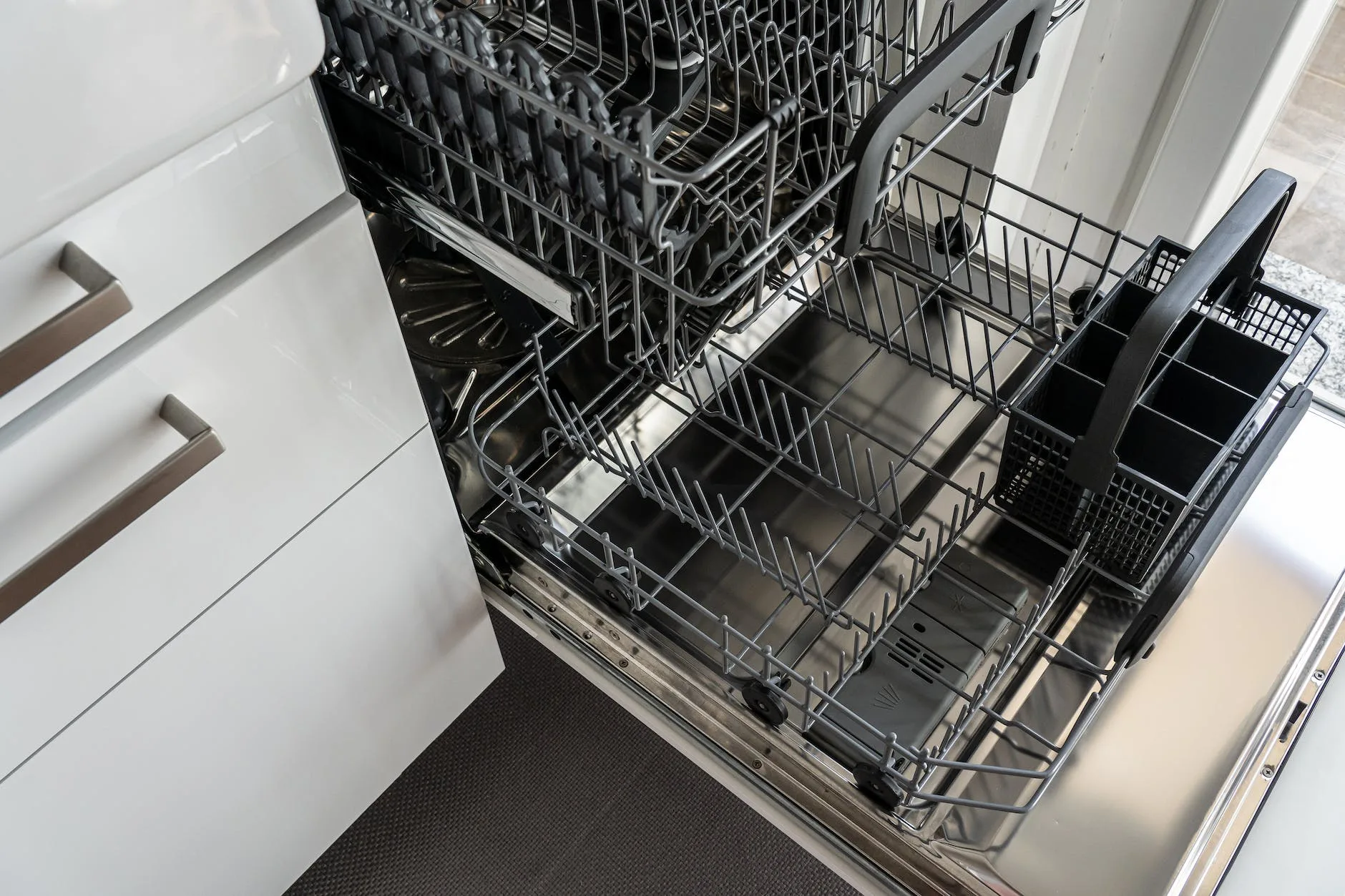
Photo by Castorly Stock on <a href="https://www.pexels.com/photo/empty-dishwasher-3829549/" rel="nofollow">Pexels.com</a>
If you’re like most homeowners, you depend on your dishwashers to clean your utensils. Using these appliances saves time and water and simplifies the cleaning process. If your current dishwasher malfunctions, your utensils will have stains. You don’t want this to happen because it can inconvenience you since you may have to rewash the dishes.
Most dishwashers have a lifespan of about 10-15 years. Like other appliances in your house, you may need to replace them after a certain period. But how do you know when it’s time to make the switch? Keep reading to learn when it may be time to install a new dishwasher.
Presence of Food Particles on Dishes
One dishwashing cycle should leave your utensils clean and free of stains. However, a malfunctioned dishwasher may leave food particles on your dishes for several reasons. Some of them include a worn-out pump, a faulty detergent dispenser, or a clogged spray arm. The leftover particles can become a breeding ground for bacteria and other harmful organisms. These organisms may cause or spread diseases that may impact your health.
A new dishwasher will provide you with better cleaning technology. Modern dishwashers are designed with thorough cleaning cycles to eliminate bacteria and dirt from your utensils. More recent models also come with features such as energy-efficient settings, delayed start, and extra wash cycles. People like to visit this site for commercial dishwasher solutions to figure out what their ideal machine should look like. These features will enable you to save time, money, and energy. Most importantly, you won’t have to wash your utensils by hand.
Leaks
A leaking dishwasher can cause significant damage to your kitchen’s floors, cabinets, and walls. The presence of moisture in these areas can encourage the growth of mold and mildew, which can affect your family’s health. Although you can temporarily fix a leaking dishwasher by sealing the drain line or eliminating clogs within the system, this solution may not be permanent. They may also be costly to repair and increase your energy bills.
If you want to avoid paying high water or energy bills and continue washing your utensils stress-free, install a new dishwasher. It will provide a lasting solution to the leakage problem and help you keep your kitchen dry at all times.
If you want to find out if your dishwasher is rusty, take a paper towel and wipe beneath it. If the towel reveals flakes of rust, it may be time to acquire a new appliance.
Rust and Cracks
Rust and cracks are not only unappealing, but they may also pose safety hazards. For example, rust can cause your dishes to become discolored and leave a metallic taste on your food. Cracks may cause water to leak out, damaging your floors. Rust may also cause the dishwasher’s racks to weaken and break. This may lead to your dishes falling and breaking during the wash cycle.
A new dishwasher comes with easier-to-clean surfaces that are rust-resistant. The materials used to make them also don’t easily crack.
The Bottom Line
You don’t want a broken dishwasher in your kitchen because it may cause more problems than the solutions it offers. If you notice any of these signs, contact a professional dishwasher installer. Also, when buying a new appliance, ensure it has an energy star label. Such a dishwasher will save you water and energy throughout its lifetime.











